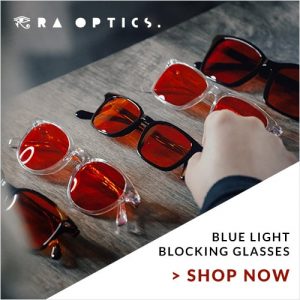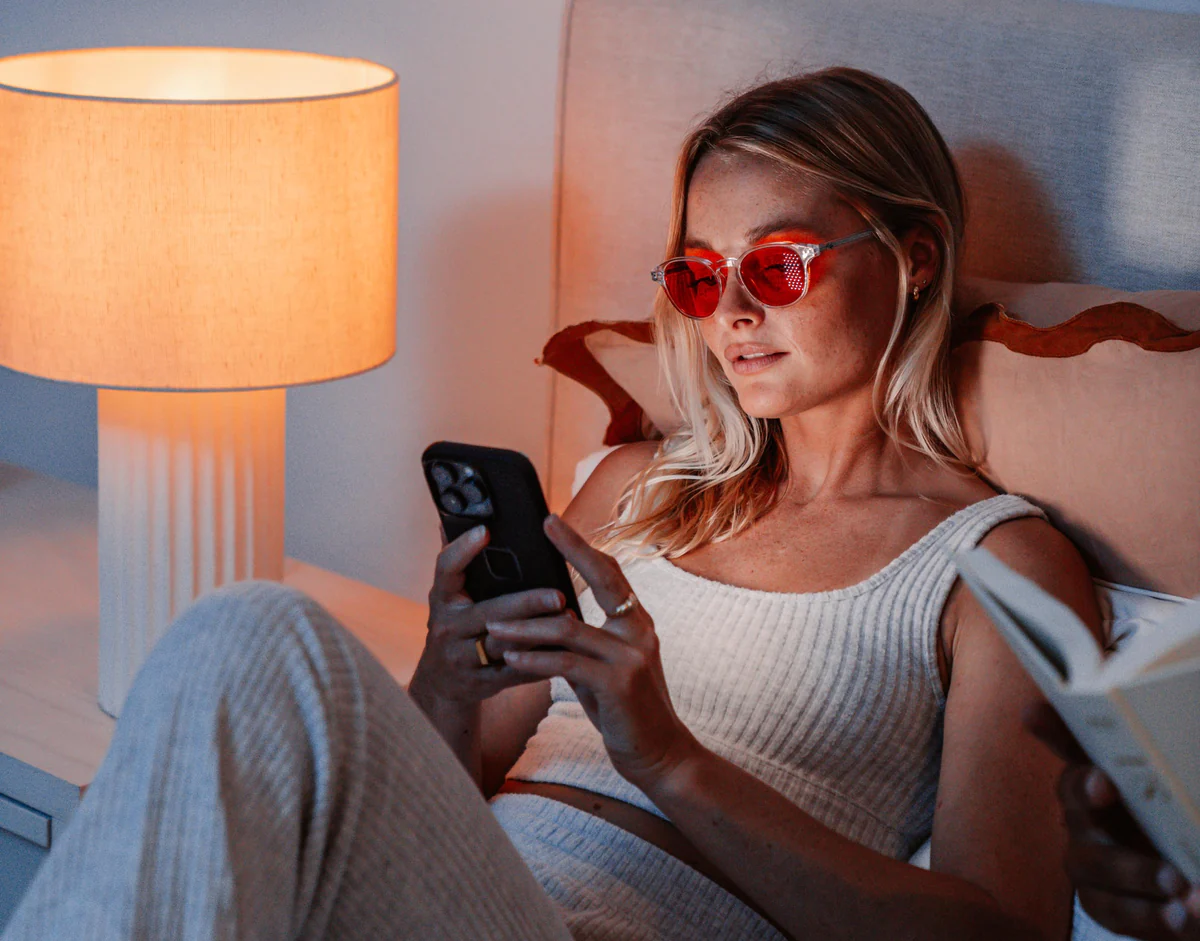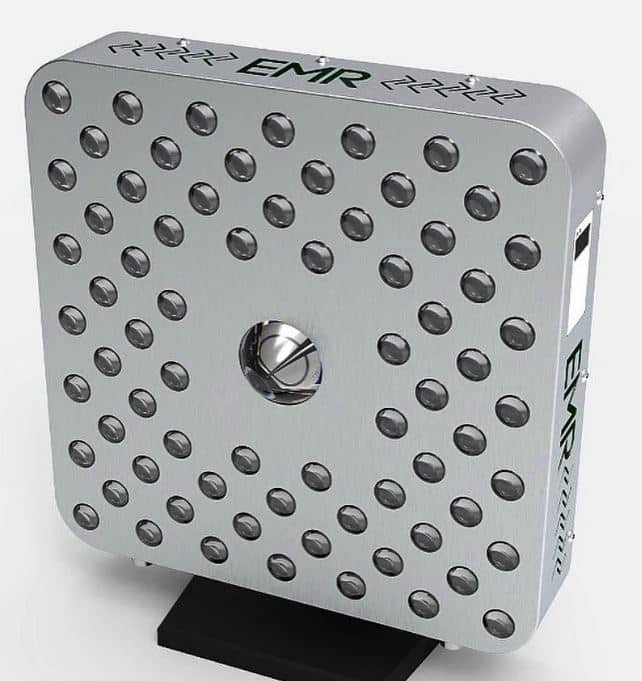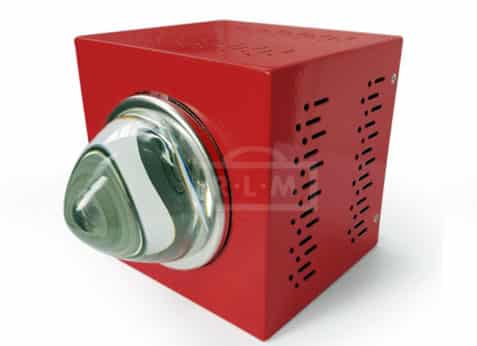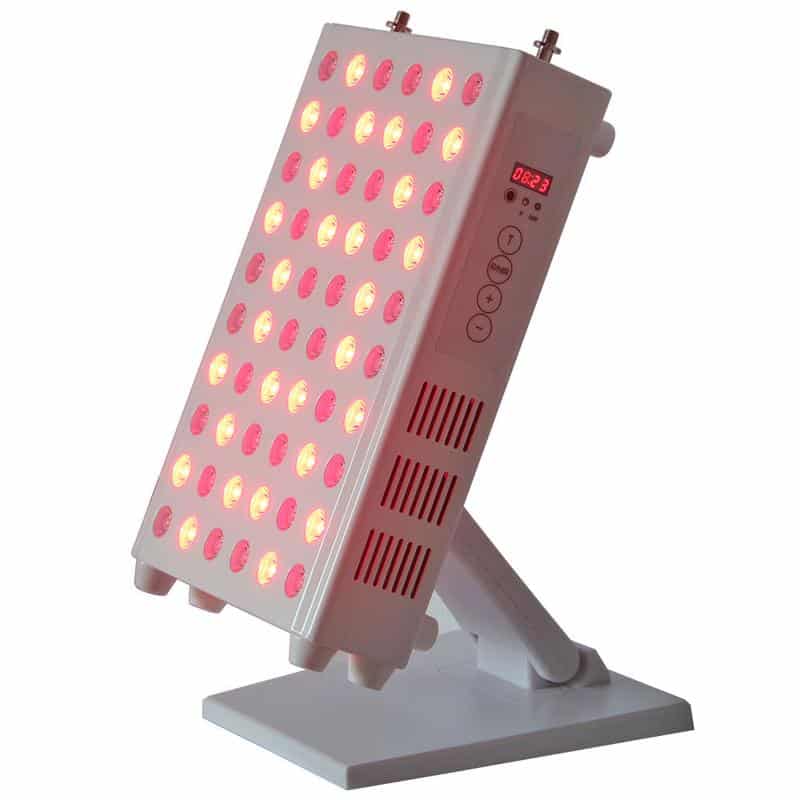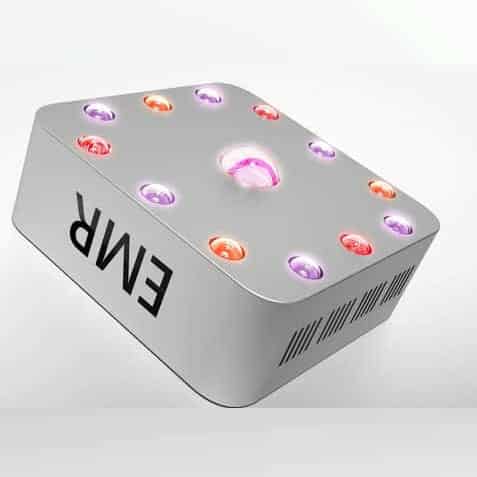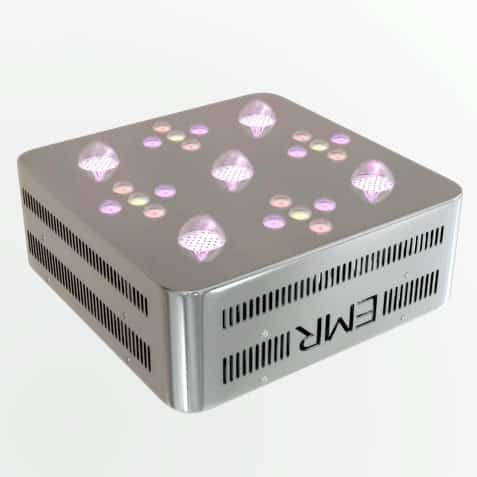
Introduction
Red light therapy, technically referred to as photobiomodulation (PBM), low level laser therapy (LLLT) or biostimulation, is a form of light therapy that employs red and near-infrared light for therapeutic application.
This type of therapy has become very popular and widely-used as non-invasive treatment modality in health clinics, wellness spas and athletic centers around the world. Celebrities, athletes, leading skincare professionals, fitness trainers and natural health leaders everywhere are using red light therapy as part of their daily regimen.
As with any therapeutic treatment, it’s advisable to talk with your doctor, health professional or dermatologist before starting red light therapy, low-level laser therapy or any other type of therapy to determine how it can help you achieve healthy results.
Of all the colors of the rainbow, red has the longest wavelength, the shortest frequency, and the lowest energy with a wavelength of visible light in the 620–750 nm (400–484 THz frequency) range.
Health Benefits of Red Light Therapy
According to WebMD, red light therapy may help with dementia, dental and oral pain, hair loss, muscle pain, osteoarthritis, tendinitis, reducing wrinkles, acne scars, burns, and signs of UV sun damage.
To date there are over one thousand published studies and trials showing a wide range of positive findings on red light therapy in particular. The library of research continues to grow and is changing the way we view and approach pain, inflammation, sleep issues, youthful skin, improved vision, weight loss, hair loss and wellness in general.
A Brief History of Low Level Light Therapy (LLLT)
Light therapy became most formally known to the medical community in 1967 when Hungarian physician, Endre Mester, developed the first low-level laser therapy device and tested its effects on skin cancer.
His research would later show that his device had a positive effect on wound healing processes, which laid the foundational research that eventually led the FDA to approve the first low-level laser therapy device in 2002.
How Does Light Therapy Help Us Stay Healthy?
Improved Mitochondrial Function
Mitochondria are organelles within our cells that turn sugars, fats and proteins into energy that the body uses to keep us alive and well. They are commonly referred to as the “powerhouse of the cell”.
Mitochondria produce about 90% of the energy that cells need to survive, so when our mitochondria aren’t healthy, illness, accelerated aging and serious diseases are the result.
In addition to creating the lion’s share of the energy we need to survive, mitochondria also produce chemicals that break down waste products and recycle some of those waste products to save further energy. They are incredible…when they’re healthy.
Apoptosis
Mitochondria also play a part in making cells die called apoptosis. Apoptosis is a natural function that is vital to our growth and development. Often cells don’t die when they should and they can interfere with the proper function of new cells and worse, can start to grow uncontrollably. When the latter happens, a tumour starts to grow, so it’s no surprise that mitochondria play an important part in cancer and are the targets for anti-cancer drugs.
Improved Mitochondrial Function
This type of therapy speeds up the metabolism of cells and allows them to more efficiently create the energy they need by promoting mitochondrial function. Red light therapy has a marked effect on stem cells.
Red Light Therapy for Weight Loss
Because it improves mitochondrial function which results in a faster turn-over of sugars, red light therapy may therefore help people to lose weight.
Has red light therapy been shown to be a miracle remedy that will cause you to shed weight overnight? Read our article on light therapy for weight loss and find out how it works and what the science is showing.
Red Light Therapy for Muscle Repair
Research has shown that red LED therapy could be useful in improving patient’s symptoms regarding pain, clicking, and number of tender muscles.
The concept behind red light therapy for pain is that red and infrared light penetrates the skin without cutting it. Evidence shows that infrared light stimulates mitochondrial function, which among many other benefits, can also work to help reduce inflammation, and pain. A triple-blind study of mice has shown that neuropathic pain due to inflammation was significantly decreased with the use of red light therapy.
Can It Be Used to Treat Back Pain?
One seven-week long study demonstrated that portable infrared therapy packs strapped to the back of the waist were effective at reducing chronic lower back pain.
Can It Be Used to Treat Neck Pain?
High intensity laser therapy has also been proven effective at relieving chronic neck pain. A double-blind, randomized controlled study of 60 chronic neck pain patients found that high intensity light therapy increased range of motion, decreased pain, and improved functionality over six weeks. Red light therapy also seems to decrease healing times for cutaneous injuries or wounds.
Red Light Therapy for Youthful Skin and Wrinkle Reduction
Sending streams of red light deep into skin tissue is a non-invasive therapy that activates the production of collagen and elastin, which simultaneously moistens and tightens the skin.
This process also removes bacteria that cause skin irritations like acne by closing dead pores in the skin. This also helps the skin radiate a youthful and attractive glow.
LLLT has beneficial effects on wrinkles, acne scars, hypertrophic scars, and healing of burns. While aging is unavoidable, research has shown that it can be somewhat delayed.
Furthermore, research has shown evidence that LLLT is able to modulate the immune system at the skin and joint, and it has been shown to be efficacious in humans by affecting bacterial colonization as it may pertain to chronic rhinosinusitis. Red light therapy affects cellular level bio-chemicals that strengthen the mitochondria which generates more energy. This energy is called Adenosine Triphosphate (ATP). Increased ATP production means a cell has more energy and can therefore function more effectively to repair damage which contributes to healing and renewal.
Red Light Therapy only penetrates approximately 5 millimeters into the skin, directly stimulating cell regeneration without causing damage to the outer layer of skin. Red Light and Near Infrared Light Therapy may also help in the treatment of skin sores.
All of these benefits come without risks, side effects, or recovery periods. This type of light treatment is an increasingly popular way to tighten loose skin, treat wrinkles and crow’s feet in a gentle, non-invasive way.
How to Use Red Light Therapy for Hair Loss
Red light has been found to be effective as a treatment for hair loss. Specifically light in the 620nm (nanometer) to 660nm wavelengths have shown the best results. By increasing blood flow in the scalp, metabolism in hair follicles is stimulated resulting in increased production of hair.
Red light is capable of penetrating the skin and reaches the base of hair follicles, thus stimulating the cells to produce more energy. This results in improved cellular replication, which can lead to new hair growth.
Controlled clinical trials demonstrated that LLLT stimulated hair growth in both men and women.
The majority of studies covered in this review found an overall improvement in hair regrowth, thickness, and patient satisfaction following LLLT therapy.
Due to the fact that red light therapy stimulates the body’s natural growth processes, the anecdotal evidence we’ve come across indicates that hair only grows back where it normally would.
Frequently Asked Questions About Red Light Therapy
Here are some of the most commonly asked questions about red light therapy and LLLT.
Are There Risks?
There seem to be very few risks associated with red light therapy. According to medicalnewstoday.com, “RLT is a completely natural process. It exposes the skin to levels of light that are not harmful — unlike UV light coming from the sun.
Because of this, there is virtually no risk of side effects from undergoing RLT. However, a practitioner with little experience or someone who exposes themselves to too much of the treatment may cause tissue and cell damage.”
Product misuse may cause damage to the skin, burns, or damage to unprotected eyes. Proper safety precautions include protecting the eyes and not looking directly at the laser.
How long does it take for it to work?
It is not an immediate miracle transformation that will occur overnight. It will provide you with ongoing improvements that you will begin to see in anywhere from 24 hours to 2 months, depending on the condition, its severity, and how regularly the light is used.
Is Red Light Therapy FDA approved?
Therapies themselves aren’t what typically get FDA approval; it’s the devices that must go through the FDA approval process to prove that it works and is safe to use. So yes, red light therapy has been FDA approved. But not all red light therapy devices have FDA approval.


